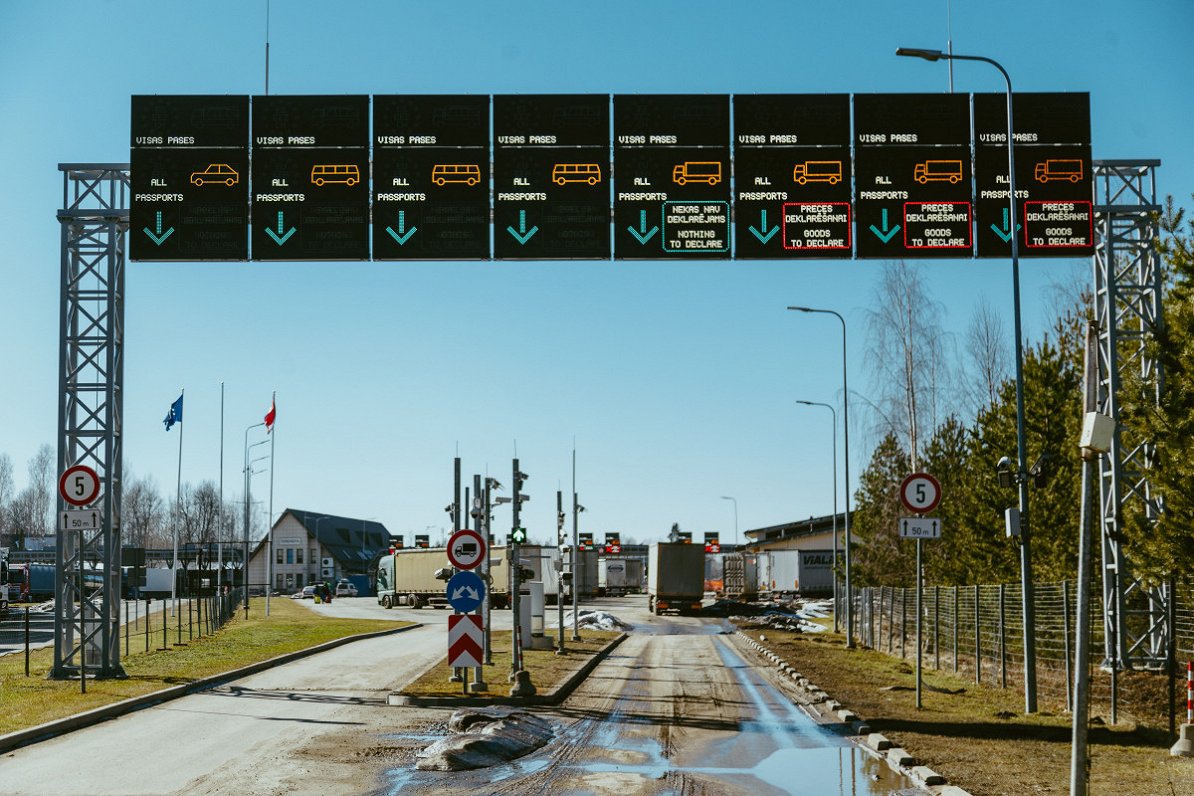Overall, in the last two years of Russia waging a full-scale war in Ukraine and the European Union imposing sanctions on various groups of goods against the aggressor country, Latvian law enforcement authorities have initiated several hundred criminal cases. However, a small part of the proposed criminal sanctions cases has arrived in court – in the last two years, only 22 cases have been brought before the court of first instance.
"And exactly seven verdicts in 2022 and 2023 have come into effect. A total of 310 cases have been brought. These are proposed criminal proceedings. The number of criminal proceedings brought seems high, but only seven cases have been heard in courts. But these criminal proceedings, at least the judgments that have come into effect, indicate that the accused are natural persons from the Republic of Latvia," said assistant lawyer of BDO Law, certified specialist of international sanctions, Jānis Ciguzis.
A further connecting factor is that in all cases the defendants have pleaded guilty and entered into a plea deal.
Each case is different. The goods sold to Russia and Belarus are different: from liquefied gas cylinders, and wooden track parts to a case in which a Latvian football club sold a Brazilian athlete to a Belarusian club.
“The problem was that this Belarusian club that bought this player is owned by OJSC Belaz, a Belarusian state-owned company that is one of the world's largest truck manufacturers and provides the Lukashenko regime with significant income. That's why it's on the sanctions list,“ Ciguzis said.
There are also two propaganda cases where Latvians have made content available to a Russian Federal news Agency.
However, the loudest and most punitive sanctions lawsuit involves the sale of luxury cars.
According to the publicly available information, a Bentley car was sold from Latvia and a Kyrgyzstan citizen was indicated as the recipient on the sales invoice. However, the car was brought in for use in Russia via the Narva border checkpoint in Estonia and illegally handed over to a Russian citizen who registered the car on his property. The court imposed a penalty of more than €170 thousand.
Jānis Ciguzis observed that the sentences in the cases so far have been increasing gradually: "Sentences are becoming harsher recently. It's palpable. If it is 10 minimum monthly salaries in that footballer sale case, then it is a hundred [monthly salaries] in the last case. So ten times the penalty. The coercive measures applied are also more severe."
He also said that several companies have so far approached the law firm, not to seek legal help in the sanctions lawsuit, but to find out preventively what risks exist in interstate transactions.
Reports of suspicious transactions by commercial banks are received and evaluated by the Financial Intelligence Service (FID). Deputy FID Chief Paulis Iļjenkovs said that the ability of commercial banks to detect suspicious transactions is positive and statistics show this.
"We received 281 reports of suspicious transactions in 2022 that sanctions may have been circumvented. And the current information for 2023 is on a growing trend. So we saw 510 reports of suspicious deals for circumventing sanctions," Iļjenkovs said.
Not every suspicious transaction means there was a breach of sanctions, but each of those cases is being assessed in depth by the FID.
"Then, further analyzing these cases, we either inform the State Revenue Service (VID) Customs Office so that colleagues in this institution can pay heightened attention to the merchants we have reported. Or, if we already have reasonable suspicions and sufficient information has been collected, we shall transfer the information for possible commencement of criminal proceedings to the VID Tax and Customs Administration or the State Security Service. We cooperate with the Security Service in cases of violation of financial sanctions, where there are nuances in violating them, unlike prohibitions on exports and imports of goods. There, sanctions are of a different nature, thus the methods of circumvention differ,” Iļjenkovs said.
The State Security Service told Latvian Radio that since the war started by Russia in Ukraine, the service has started 14 criminal proceedings on suspicion of violating sanctions imposed by the European Union (EU). Of these, three criminal proceedings involve the export of goods.



























